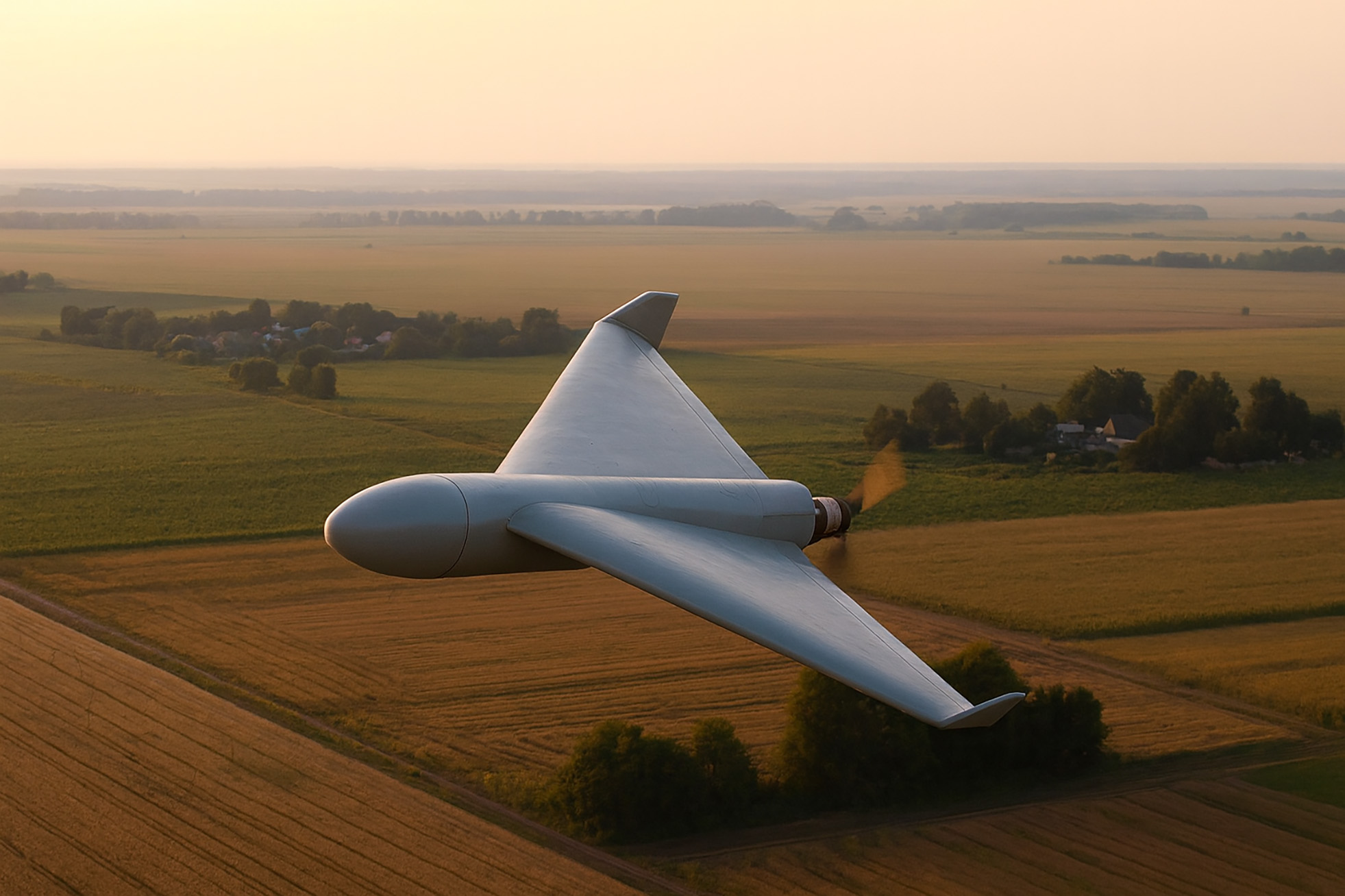Carlos Taylhardat | 3 Narratives News | September 10, 2025
“We are closer to military conflict than at any time since World War II.”
That stark warning came from Polish Prime Minister Donald Tusk after Russian drones pierced Poland’s skies during a massive overnight assault on Ukraine. It was the first time NATO territory had been directly engaged by Moscow’s drones — and it has thrown peace negotiations into sudden uncertainty.
A NATO Line Crossed
On the night of September 9–10, Poland confirmed that at least 19 Russian military drones entered its airspace. Polish F-16s and Dutch F-35s, flying under NATO command, intercepted and destroyed them. The move triggered Article 4 of the NATO treaty, summoning an urgent consultation of allies in Brussels. For many, it was a chilling reminder that Europe’s largest war since 1945 can no longer be contained within Ukraine’s borders.
NATO’s Escalation and Poland’s Alarm
Poland declared the incident the gravest security breach since World War II. Prime Minister Tusk stressed that while a full-scale NATO-Russia war is not imminent, Moscow’s actions could not go unanswered.
European Commission President Ursula von der Leyen called for stronger sanctions and a “united front.” NATO, in turn, issued a joint statement reaffirming its readiness to defend every inch of allied territory.
The message was clear: the alliance will not allow Russia to test its resolve, even if that means risking direct confrontation.
Ukraine’s NATO Bid Gains Urgency
Ukrainian President Volodymyr Zelenskyy called the drone incursion
“an extremely dangerous precedent for Europe.”
He urged NATO to take collective responsibility for air defence, warning that Russian attacks now put not only Ukraine but all of Europe at risk.
This incident sharpens Kyiv’s long-standing argument: Ukraine’s security is Europe’s security. For Zelenskyy, the breach strengthens the case to fast-track Ukraine’s NATO membership, even as Western leaders remain divided over the risks of direct war with Russia.
Peace talks, already fragile, may now be overshadowed by NATO’s defensive calculations — and by Kyiv’s intensified lobbying for alliance protection.
Moscow’s Denials and Strategic Signals
The Kremlin was swift to rebuff claims that Russian drones intentionally violated NATO airspace. Dmitry Peskov, the Kremlin spokesman, avoided direct attribution, declaring: “In this case, we would not like to comment on it in any way. This is not our responsibility — it is the prerogative of the defence ministry.”
He also dismissed EU and NATO accusations as “baseless and routine.” From Moscow’s vantage point, the incursion was either an accident or a mischaracterized response. Belarusian officials — echoing Russian tones — said some drones may have “lost their course” due to electronic jamming.
Yet NATO and Polish leaders were sharply skeptical, calling such explanations implausible given the scale and clustering of the incursion.
In a final layer, strategic ambiguity seems intentional. By denying direct intent and attributing incidents to technical mishaps, Moscow effectively preserves plausible deniability — a tactic that allows probing of NATO’s defences and unity without triggering a collective defence response under Article 5.
This maneuver fits a larger pattern: as Russia gears up for joint military exercises with Belarus, the drone breach may be viewed as a calibrated signal — testing how far Moscow can stretch NATO’s tolerance before triggering a full-fledged alliance response.
The Silent Story: Peace Talks at Risk
Lost in the diplomatic noise is what this means for fragile peace negotiations. Talks between Kyiv and Moscow had barely resumed, with Turkey and the UN exploring frameworks for prisoner exchanges and energy guarantees.
Now, with NATO on high alert and Ukraine hardening its stance, the window for compromise may be closing fast.
For ordinary Ukrainians and Poles, the incursion is more than geopolitics — it is a reminder that the war’s front lines are unpredictable, and peace can vanish overnight.
Key Takeaways
- Russian drones crossed into Polish airspace; NATO forces shot them down.
- Poland invoked Article 4, summoning urgent NATO consultations.
- Zelenskyy argues the breach proves Ukraine’s case for fast-track NATO membership.
- Moscow denies intentional aggression, claiming “off-course drones.”
- Peace talks may falter under renewed NATO-Russia tensions.
Questions This Article Answers
- What happened in Polish airspace during Russia’s latest attack?
- How did NATO and Poland respond to the drone incursion?
- What is Ukraine’s position on NATO membership after the breach?
- How has Russia officially responded?
- Does this incident threaten peace negotiations between Kyiv and Moscow?
Related Reading
- The Anti-Western Axis: Xi, Putin, Modi, and the SCO’s Bid for a Southern-Led Global Order
- War of Ukraine and Russia — Bad Call
Sources: Reuters, The Guardian
